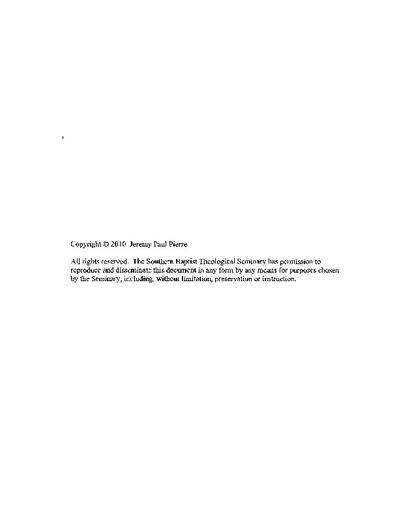"Trust in the Lord with All Your Heart": The Centrality of Faith in Christ to the Restoration of Human Functioning
Subject
FaithEdwards, Jonathan, 1703-1758
Abstract
This dissertation first examines how Scripture describes the internal workings
of the human person, which can be referred to as the heart. The heart is shown to
function cognitively, affectively, and volitionally, all of which are relational in nature.
Second, the dissertation establishes that faith in Christ is the means by which all of these
functions are restored. Specifically, the heart's cognitive, affective, and volitional
functions are changed as a person relates rightly to his or her Designer and Redeemer
through faith. In sum, this dissertation describes the biblical understanding of the heart
and the necessity of faith in Christ for its proper operation.
Chapter 1 examines the major anthropological terms used in the New
Testament, considering how each functions in context and concluding that the biblical
perspective of internal human functioning is holistic and unified.
Chapter 2 establishes that a gospel-centered hermeneutic of Scripture implies
that faith is central to the illocutionary intent of Scripture as a whole. The Gospel of John
and the Epistle to the Romans are examined to establish further the centrality of faith.
Chapter 3 describes the transformative effect of faith on the cognitive,
affective, and volitional functions attributed to the heart as it relates rightly to God.
Chapter 4 describes implications for an evangelical model of counseling, also
considering the thought of Jonathan Edwards as a historical precedent to the present
study.

